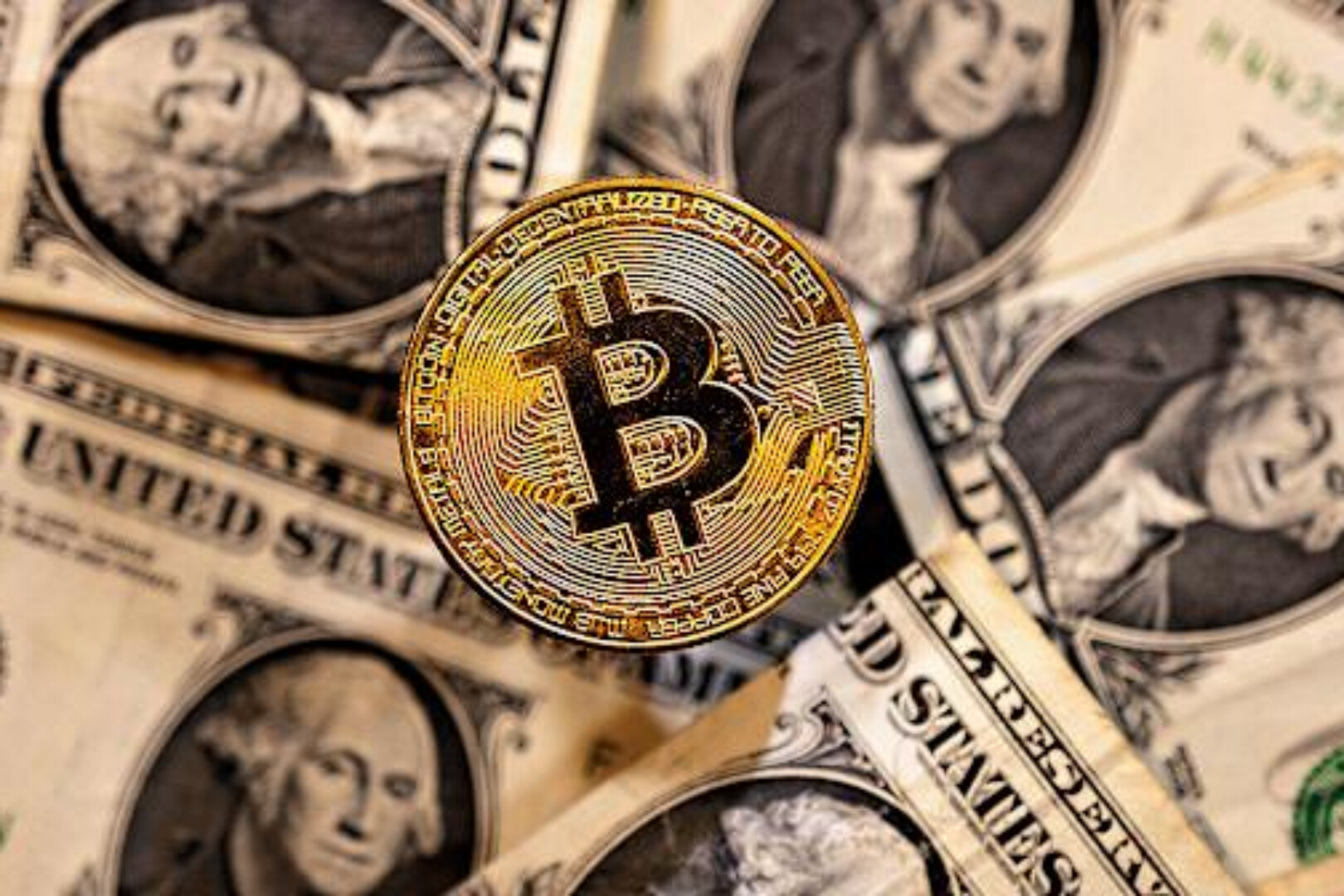Originally Posted by Babywhale, Foresight News
Originally Posted by Babywhale, Foresight News
On March 12, 2020, affected by the epidemic, U.S. stocks experienced the largest one-day drop since "Black Monday" in 1987, triggering the second circuit breaker in the history of U.S. stocks, and even a single-day bitcoin crash appeared in the encrypted market. The "grand occasion" of cutting in half. And three years later, will all this happen again?
According to the OKX market, Bitcoin fell below the 20,000 USDT mark in a short-term this morning, hitting a new low since January 14, with a 24-hour drop of more than 8%. According to Coinglass data, in the past 24 hours, the entire network has liquidated more than 300 million US dollars, of which Bitcoin liquidated 117 million US dollars and Ethereum liquidated nearly 75 million US dollars.
Although the consecutive drop that pierced the key support levels around $21,300 and $20,500 came early this morning, some people in the encryption market have already smelled the crisis in advance.
Voyager sold $350 million in crypto assets in the past 6 weeks, including $100 million in ETH, $25.83 million in SHIB, and $11.22 million in VGX, and currently holds $151.22 million in ETH, $49.53 million in VGX, and $41.4 million in VGX The SHIB.On March 9th, Beijing time, the Fantom FoundationTransfer 10 million Fantoms from FTM to Binance
, and then proposed 6 million FTMs on Ethereum.At noon yesterday, Crypto.com redeemed 50.27 million MATIC from the Polygon pledge contract andTransfer 43.5 million MATIC to Binance
, and then transferred 31.5 million MATICs back to Crypto.com.In the early hours of this morning, a person who has held UNI for two yearsTransfer 710,000 UNI to Binance
, the address currently holds 670,000 UNI.
Silvergate and Silicon Valley Bank have been hit by thunder
Beijing time yesterday evening, Silicon Valley Bank announced that the sale of some securities in the investment portfolio will result in a loss of US$1.8 billion, and seeks to raise US$2.25 billion through the sale of common and preferred shares. Affected by this news, the share price of Silicon Valley Bank plunged 60.41% on Thursday local time in the United States, closing at $106.04, the biggest one-day drop since 1998. Affected by Silicon Valley Bank, U.S. bank stocks also fell sharply. JPMorgan Chase fell 5.41%, Bank of America fell 6.2%, Wells Fargo fell 6.18%; Citigroup fell 4.1%.
As of the close of U.S. stocks in the early hours of Beijing time, the Nasdaq fell 2.05%, the S&P fell 1.85%, and the Dow fell 1.66%.Before Silicon Valley Bank, the encryption-friendly bank Silvergate Bank had already laid the groundwork for the banking crisis. On March 2, Beijing time, Silvergate Bank announcedPostponement of publication of annual report
, and said it was currently analyzing certain regulatory inquiries and investigations related to the company. This move caused panic in the market, causing its stock price to fall by more than 10% after hours.After the U.S. stock market opened in the evening of the same day, Beijing time, Silvergate Bank’s stock price plummeted 43%, and the stock price had fallen by nearly 60% by the time of the close. Silvergate’s previous customers Coinbase, Circle, Paxos, Crypto.com, Bitstamp, Cboe Digital Markets, Galaxy and Gemini have expressed that They will。
suspend business with the bankOn March 4, Silvergate announced。
suspends its Silvergate Exchange Network (SEN) trading networkOn March 8, according to Bloomberg News citing people familiar with the matter, Silvergate is negotiating with the Federal Deposit Insurance Corporation (FDIC) officials.Chat about ways to save the bank
. One option could involve recruiting crypto industry investors to help boost Silvergate's liquidity, one of the sources said.However, this negotiation may ultimately end in failure. On March 9, Silvergate Bank announced that it will proceed in an orderly manner in accordance with applicable regulatory procedures.Winding down operations and voluntary liquidation
, including full repayment of all deposits.
As of the close of US stocks early this morning Beijing time, Silvergate's share price was at $2.84, down 98.8% from its intraday record high of around $240.
The Federal Reserve “beats” the encryption market one after another
On Tuesday night Beijing time, Federal Reserve Chairman Powell testified in Congress on monetary policy, saying that if necessary, the Fed is ready to accelerate the pace of interest rate hikes and the final interest rate may be higher than expected. Affected by this hawkish remarks, the market expects that the probability of raising interest rates by 50 basis points in March has directly increased by more than 70% from about 10% at the beginning of the year.
Although on Wednesday night, Powell said that the actual rate hike needs to be judged based on non-agricultural and CPI data, but the panic in the market is still spreading.
In addition to the poor macro environment, Powell "beat" the encryption market when he delivered his testimony and answered questions from lawmakers.
Powell said the Fed is watching the cryptocurrency space and seeing quite a bit of fraud. In addition, Powell also said that non-bank activities in the field of cryptocurrency and mortgage lending should be subject to the same supervision as regulated banks. The U.S. Congress also needs to provide a "legal framework" for digital assets and regulate stablecoins.
Beijing time yesterday evening, Federal Reserve Vice Chairman Barr in charge of financial supervision also said that encryption technology is still "potentially transformative", but "appropriate boundaries" need to be maintained. Banks should treat cryptocurrencies with caution. Banks that directly hold cryptocurrencies are considered unsafe. In addition, the Federal Reserve has formed a team to study cryptocurrency innovation, is strengthening its ability to regulate cryptocurrencies, and plans to continue issuing guidance on cryptocurrencies.
Crypto's most severe external challenge "in its life" is coming?
If the liquidation of Silvergate Bank is still related to the performance of the cryptocurrency market, then the crisis of Silicon Valley Bank has sounded the alarm for the financial market.
Arthur Hayes, founder of BitMEX, said on Twitter that Powell may have punctured the crisis in the US banking system.
In 2008, the global financial tsunami caused by a large number of subprime loan defaults in the US real estate market is still vivid. At present, due to the decline in the price of the bonds invested by Bank of America in this round of interest rate hikes, coupled with the run on individuals and companies triggered by expectations of an economic recession, banks have to sell bonds at a loss in exchange for cash. Such a vicious circle may make the banking industry once again face the most serious shock from the financial market since the bankruptcy of Lehman Brothers.





